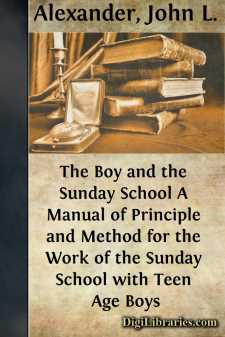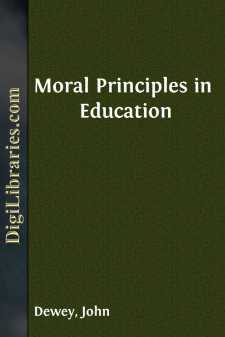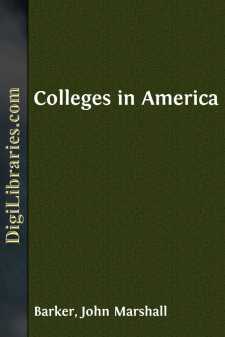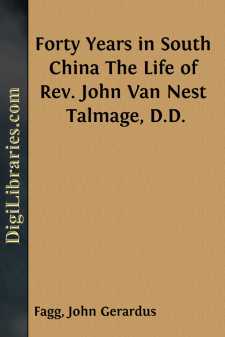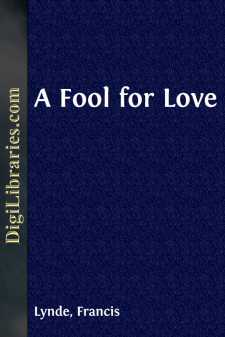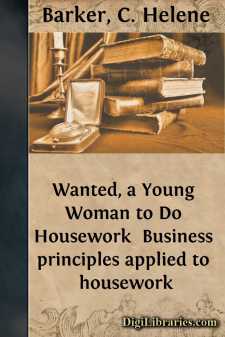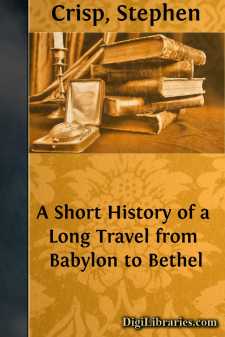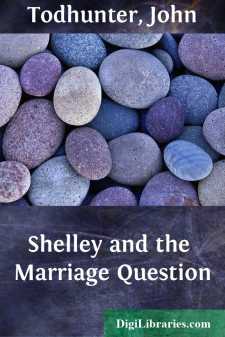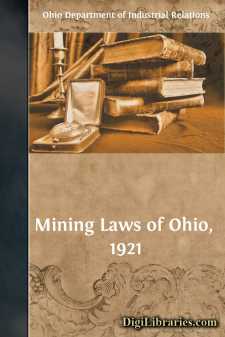Non-Classifiable
- Non-Classifiable 1768
Non-Classifiable Books
Sort by:
INTRODUCTION The Sunday school chapter of Church history is now being written. It comes late in the volume, but those who are writing it and those who are reading it realize—as never before—that the Sunday school is rapidly coming to its rightful place. In the Sunday school, as elsewhere, it is the little child who has led the way to improvement. The commanding appeal of the little ones opened the...
more...
by:
John Dewey
Education as a public business It is one of the complaints of the schoolmaster that the public does not defer to his professional opinion as completely as it does to that of practitioners in other professions. At first sight it might seem as though this indicated a defect either in the public or in the profession; and yet a wider view of the situation would suggest that such a conclusion is not a...
more...
COLLEGES IN AMERICA. I. THE RISE OF UNIVERSITIES IN THE OLD WORLD. The American college system is deeply rooted in the past. It will be better understood if we trace briefly its historic connection with the ancient and European seats of learning. Higher education has been promoted among all great nations. Flourishing colleges were founded among ancient people. In the kingdoms of Judah and Israel,...
more...
I. THE ANCESTRAL HOME John Van Nest Talmage was born at Somerville, New Jersey, August 18, 1819He was the fourth son in a family of seven brothers and five sisters. The roots of the Talmage genealogical tree may be traced back to the year 1630, when Enos and Thomas Talmage, the progenitors of the Talmage family in North America, landed at Charlestown, Massachusetts, and afterwards settled at East...
more...
KNOWLEDGE IS SAFETY. 1. The old maxim, that "Knowledge is power," is a true one, but there is still a greater truth: "KNOWLEDGE IS SAFETY." Safety amid physical ills that beset mankind, and safety amid the moral pitfalls that surround so many young people, is the great crying demand of the age. 2. Criticism.—This work, though plain and to some extent startling, is chaste, practical...
more...
by:
Francis Lynde
I. IN WHICH WE TAKE PASSAGE ON THE LIMITED It was a December morning,—the Missouri December of mild temperatures and saturated skies,—and the Chicago and Alton's fast train, dripping from the rush through the wet night, had steamed briskly to its terminal track in the Union Station at Kansas City. Two men, one smoking a short pipe and the other snapping the ash from a scented cigarette, stood...
more...
by:
C. Helene Barker
CAUSES OF THE PRESENT UNSATISFACTORY CONDITION OF DOMESTIC LABOR Ignorance and inefficiency in the home. Difficulty of obtaining women to do housework. The disadvantages connected with housework compared with work in factories, stores, and offices. IGNORANCE AND INEFFICIENCY IN THE HOME The twentieth-century woman, in spite of her progressive and ambitious theories about woman's sphere of...
more...
by:
Stephen Crisp
INTRODUCTION Writings of the first Quakers, even minor writings, often kindle in us today an ardor to seek what they sought and to find what they found. The excellent book by Luella M. Wright entitled "The Literary Life of the Early Friends, 1650-1725" is a pleasant and convenient introduction to these numerous and often lengthy productions of which 2600 have been listed for the first 75 years....
more...
by:
John Todhunter
SHELLEY AND THE MARRIAGE QUESTION. Now that marriage, like most other time-honoured institutions, has come to stand, a thing accused, at the bar of public opinion, it may be interesting to see what Shelley has to say about it. The marriage problem is a complex one, involving many questions not very easy to answer offhand or even after much consideration. What is marriage? Of divine or human...
more...
RELATING TO CHIEF INSPECTOR OF MINES AND DISTRICT INSPECTORS OF MINES. Mining Laws of Ohio Sec. 898. Repealed. (Appointment of chief.) Sec. 899. [Qualifications of chief inspector of mines.] No person shall be appointed chief inspector of mines unless he has a competent knowledge, insofar as such sciences relate to mining, of chemistry, the mineralogy and geology of this state, a practical knowledge of...
more...


